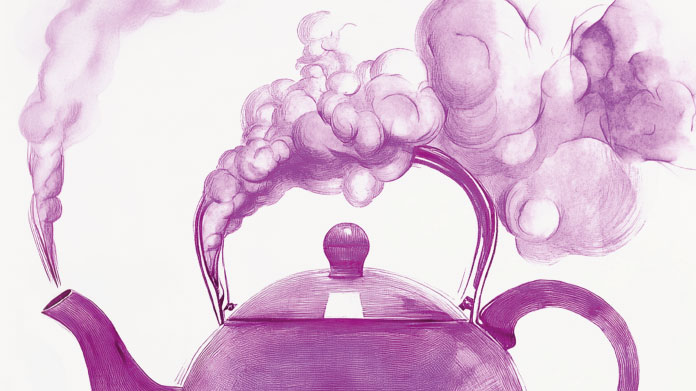Going on holiday: 4 solutions to ensure peace of mind during your trip
Every year, it’s the same. We can’t wait to go on holiday, but when it’s time to go, there’s always something that puts a dampener on things. Pre-departure stress, travel sickness, the effects of jetlag, travellers’ diarrhea … These minor worries are far from infrequent but the good news is they can be easily avoided. Read on for our tips on how to travel with complete peace of mind!

Dealing with pre-departure stress
Holidays are often organised several months in advance in order to avoid the stress of last-minute arrangements. Despite this, however, it’s common to have concerns as the departure date approaches. Has the reservation been confirmed? How can we avoid traffic jams? What time does my flight leave? What will I do if I have a problem during my trip? These worries chip away at us, increasing our stress levels and potentially spoiling the start of our holiday.
SuperSmart’s advice: A few days before you go, take the time to do some relaxation exercises each day - it can significantly reduce the stress and worry of going on holiday. And if you haven’t already tried it, a course of magnesium supplements can be really beneficial. Essential for optimal function, this mineral plays a part in energy production, muscle relaxation and stress reduction.
Preventing travel sickness
Whether you’re travelling by ‘plane, boat, car or even motorbike, motion sickness can potentially ruin your holiday. Referred to by scientists as kinetosis, it is caused by an imbalance between visually-perceived movement and that captured by inner ear structures known as the vestibular system. It’s thought almost 30 million people in Europe could be chronic kinetosis-sufferers – perhaps you’re among them?
SuperSmart’s advice: While motion sickness is harmless, it is nevertheless unpleasant and restrictive. There are, however, a number of ways of dealing with it. Did you know, for example, that ginger rhizomes are recognized by health authorities for preventing nausea and vomiting caused by travel sickness? Many studies have confirmed the anti-nausea and anti-emetic effects of ginger extracts.
Preparing for the effects of jet-lag
The United States, Mexico, China, Bali, Guadeloupe … long-haul destinations such as these are perfect for providing a complete change of scene and enabling you to totally switch off. At the same time, travelling several thousand kilometers in a matter of hours has an effect on the body. We’re thinking in particular of the biological clock which controls many of the body’s processes but which is disrupted when subjected to time differences. This manifests in the well-known effects of jet-lag: fatigue, concentration problem, lack of appetite, insomnia…
SuperSmart’s advice: Nothing beats being well-prepared for preventing the effects of jet-lag. A few days before your departure, it’s a good idea to get your body ready in local time, by shifting the time you get up and go to bed. During the flight, continue to adapt by trying to sleep following local time. To encourage your biological clock to adapt and prevent the effects of jet-lag, class="menu_link"melatonin spray can be beneficial. Melatonin is the hormone that plays a central role in regulating circadian rhythms.
Preventing traveller’s diarrhea
‘Turista’ or traveller’s diarrhea is often a taboo subject but it’s nothing more than simple gastroenteritis, usually caused by a food-borne bacterial infection. While some countries present more of a risk than others, traveller’s diarrhea can occur in the vast majority of destinations. This is because the body’s defenses have been disrupted by such factors as time differences, change of pace, unfamiliar diet…
SuperSmart’s advice: To avoid getting traveller’s diarrhea, a few precautions are called for. Always wash your hands before eating, don’t drink the local tap water, avoid drinks that contain ice cubes, as well as sorbet, ice cream, raw fruits and vegetables, and undercooked meat, fish and eggs. In addition to these common-sense measures, you can support your body’s defenses by taking a probiotic supplement such as Saccharomyces boulardii.
Keywords
4 Days
great products and prices
great products and prices
Marie
9 Days
Easy to navigate site
Easy to navigate site, had what I was searching for, good price. easy order-check out
James Tucker
16 Days
My skin is clearing up nicely!
Pretty good for my skin so far.
Christian
18 Days
The new packaging is excellent
The new packaging is excellent - finally! No more squashed boxes and torn envelopes.
GORAN
19 Days
Great Product
Great Product
Larry Garrett
23 Days
Quick shipping
Quick shipping; good price. No issues!
Mary McCarty
24 Days
Thr product is very good and is helping…
Thr product is very good and is helping me on my health. Then is always on time
LUGO Luz
27 Days
Buying was fine
Buying was fine. I had problems with the website not recognizing my login info, and had to call to get it fixed. Other than that, everything was good.
David S. Clark
27 Days
Your super maca and super ginseng are…phenomenal
Your super maca and super ginseng are phenomenal supplements that compliment each other when taking them together. Fantastic feeling of well-being and lots of mid day energy without the crash.
Keith Mason
30 Days
I have had amazing results with every…
I have had amazing results with every supplement I've purchased. I am extremely satisfied with this company
kirstin Torres
30 Days
Fine products
Fine products . They are on the leading edge of online supplements. The only issue -so far-is they sometime run out of subscription items.
Jason Argos
33 Days
The ordering process is very user…
The ordering process is very user friendly and the products always come in a timely manner.
CARTER Rhonda
34 Days
The price for Dr
The price for Dr. Pero's AC-11 is reasonable and in line with his views. (my former colleague). Keep it pure.
CAMPBELL Clayton
37 Days
Right on every time.
Right on every time.
Arthur Nicholas
39 Days
They are cheaper than everyone else and…
They are cheaper than everyone else and the shipping was fast. Great company.
Patricia Adams




